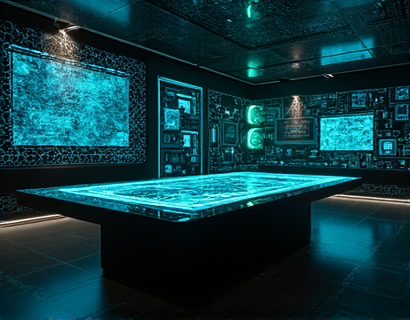Unlocking Ancient Wisdom: A Modern Guide to Historical Insights and Cultural Heritage
In an era where the pace of life often overshadows the richness of our past, there is a profound need to reconnect with the ancient wisdom and cultural heritage that have shaped our world. This guide aims to bridge the gap between historical insights and modern understanding, offering a comprehensive exploration of the timeless teachings and profound knowledge embedded in our shared history. Whether you are a history enthusiast, a cultural explorer, or simply someone seeking to deepen your appreciation of the past, this guide will provide valuable insights and perspectives that resonate with contemporary life.
The journey into ancient wisdom begins with an acknowledgment of the vast and diverse civilizations that have contributed to the tapestry of human culture. From the monumental architecture of the Egyptians to the philosophical musings of the Greeks, each civilization has left an indelible mark on our modern world. This guide will delve into the key aspects of these civilizations, highlighting their achievements, beliefs, and the lessons they offer us today.
Understanding Ancient Civilizations
The ancient Egyptians, for instance, were masters of engineering and astronomy. Their ability to construct the pyramids, precise in their alignment with celestial bodies, showcases a deep understanding of mathematics and the natural world. The hieroglyphs they left behind provide a window into their religious beliefs, social structures, and daily life. These insights not only enrich our knowledge of history but also offer lessons in perseverance, precision, and the importance of recording and preserving knowledge.
Similarly, the Indus Valley Civilization, known for its advanced urban planning and water management systems, provides a model of sustainable living. The cities of Harappa and Mohenjo-Daro were built with sophisticated drainage and irrigation systems, demonstrating an early understanding of public health and environmental sustainability. These ancient practices are increasingly relevant in today's world, where sustainable development and urban planning are critical challenges.
Philosophical and Spiritual Insights
Beyond the tangible achievements, ancient cultures offer profound philosophical and spiritual insights. The Upanishads of ancient India, for example, explore the nature of reality, the self, and the universe. These texts emphasize the interconnectedness of all things and the importance of inner wisdom. Similarly, the Stoic philosophy of ancient Greece and Rome teaches us about resilience, virtue, and living in harmony with nature. These timeless teachings continue to resonate, offering guidance on how to navigate the complexities of modern life.
The Buddhist tradition, originating in ancient India, provides a path to enlightenment through mindfulness and compassion. The Four Noble Truths and the Eightfold Path offer practical tools for overcoming suffering and achieving inner peace. These principles are increasingly recognized in modern psychology and wellness practices, underscoring the enduring relevance of ancient spiritual teachings.
Art and Architecture
The artistic and architectural achievements of ancient civilizations are a testament to human creativity and ingenuity. The Parthenon in Athens, with its perfect proportions and intricate sculptures, exemplifies the Greek pursuit of beauty and harmony. The temples of Angkor Wat in Cambodia, with their intricate carvings and vast scale, reflect the spiritual and cultural richness of the Khmer Empire. These structures not only serve as historical landmarks but also inspire contemporary architects and artists, reminding us of the power of art to transcend time.
Moreover, the cave paintings of Lascaux in France and the rock art of the San people in Southern Africa offer a glimpse into the early human experience. These artworks, often depicting animals and hunting scenes, provide insights into the spiritual and social lives of our ancestors. They highlight the universal human desire to express and communicate through visual means, a tradition that continues in modern art and design.
Cultural Heritage and Identity
Cultural heritage is not just a collection of artifacts and monuments; it is a living part of our identity. Preserving and understanding our cultural heritage helps us connect with our roots and fosters a sense of belonging and pride. It also promotes tolerance and mutual respect by highlighting the diversity and commonalities of human experiences across different cultures and time periods.
Efforts to preserve cultural heritage face numerous challenges, including natural degradation, conflict, and neglect. However, advancements in technology, such as 3D scanning and digital archiving, are providing new tools for conservation and accessibility. These technologies allow for the detailed documentation and virtual reconstruction of sites and artifacts, making them available to a global audience and ensuring their preservation for future generations.
Applying Ancient Wisdom to Modern Life
The true value of exploring ancient wisdom lies in its applicability to modern life. The lessons learned from past civilizations can guide us in addressing contemporary issues such as environmental sustainability, social justice, and personal well-being. For instance, the sustainable practices of the Indus Valley Civilization can inform modern approaches to urban planning and resource management. The Stoic emphasis on resilience and virtue can help individuals navigate the stresses of modern life with greater equanimity.
Additionally, the spiritual insights from ancient traditions can enrich our personal and collective well-being. Mindfulness practices derived from Buddhism, for example, have been shown to reduce stress and improve mental health. By integrating these ancient practices into our daily lives, we can cultivate a deeper sense of peace and purpose.
Conclusion
Unlocking ancient wisdom is not merely an academic exercise; it is a vital endeavor that enriches our understanding of the world and ourselves. By exploring the historical insights and cultural heritage of past civilizations, we gain valuable perspectives that can inform and inspire our modern lives. This guide has traversed the realms of ancient engineering, philosophy, art, and spirituality, highlighting the enduring relevance of these timeless teachings. As we continue to face the challenges of the 21st century, the wisdom of the past remains a powerful resource for building a more sustainable, just, and harmonious future.










































